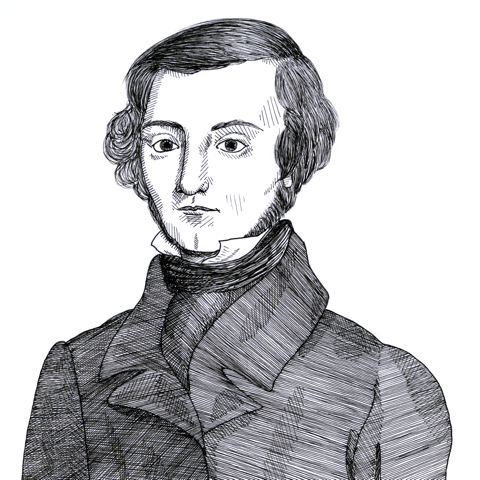
Tocqueville on Centralised Government in Canada and Decentralised Government in America (1856)
Found in: The Old Regime and the Revolution (1856)
Alexis de Tocqueville (1805-1859) believed that the true essence of the government of the old régime was revealed in the institutions it created in its Canadian colony, in very great contrast to what was happening in the British colonies:
Colonies, Slavery & Abolition
The physiognomy of governments can be best detected in their colonies … (In Canada) One might fancy one’s self in the midst of modern centralization and in Algeria. Canada is, in fact, the true model of what has always been seen there. In both places the government numbers as many heads as the people; it preponderates, acts, regulates, controls, undertakes every thing, provides for every thing, knows far more about the subject’s business than he does himself—is, in short, incessantly active and sterile.
In the United States, on the contrary, the English anti-centralization system was carried to an extreme. Parishes became independent municipalities, almost democratic republics. The republican element, which forms, so to say, the foundation of the English constitution and English habits, shows itself and develops without hindrance. Government proper does little in England, and individuals do a great deal; in America, government never interferes, so to speak, and individuals do every thing.